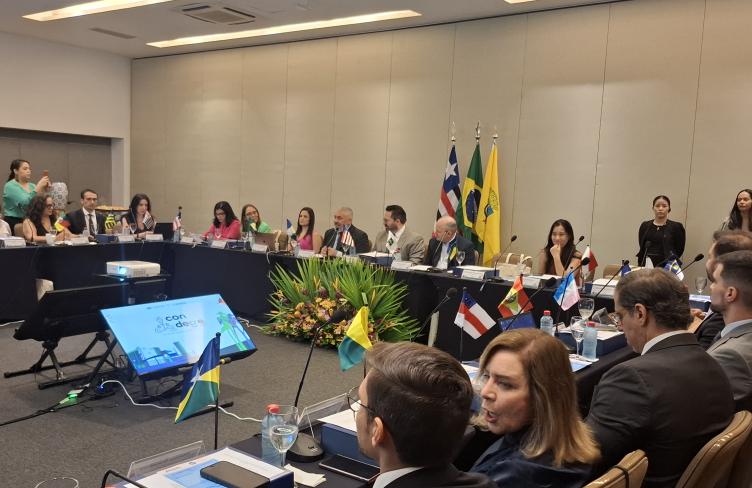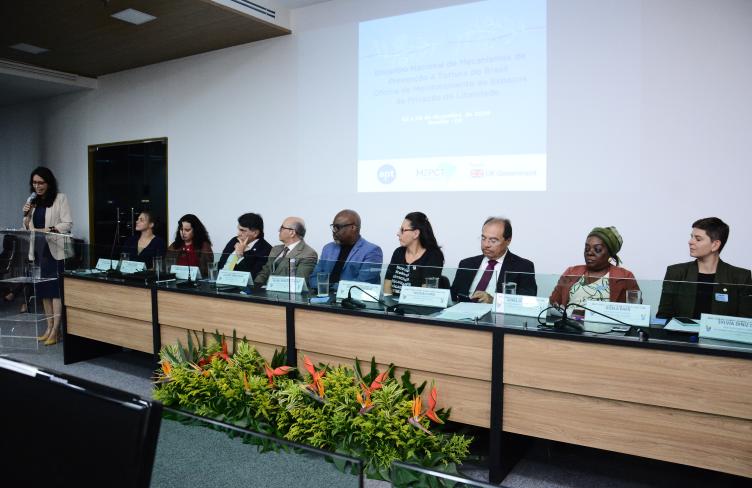
This is one of the questions we try to answer in our new ODIHR publication “Eliminating incentives for torture in the OSCE region,” jointly with Fair Trials.
It seems hard to comprehend why torture and other ill-treatment is still occurring, when the freedom from torture and other cruel, inhuman or degrading treatment or punishment is a non-derogable right under international law that must be respected and protected under all circumstances. The use of torture not only amounts to an egregious human rights violation in itself, but also leads to other serious human rights violations, including the violation of the right to a fair trial. The use of torture, and evidence obtained by torture, taints the entire criminal justice process, eroding the rule of law and public trust in the system’s ability to deliver justice. The use of torture destroys human lives and only leads to more crime. It is also clear that torture is not effective in terms of obtaining reliable evidence.
Across the OSCE region, however, the use of torture and other cruel, inhuman or degrading treatment or punishment (other ill-treatment) continues to be a problem in criminal justice systems. There is a clear discrepancy between the prohibition and the prevalence of torture, as Nils Melzer, UN Special Rapporteur on Torture and other Cruel, Inhuman or Degrading Treatment or Punishment, recently highlighted.
Acceptance and impunity
One of the main root causes for the continued existence of torture is the fact that its use is to varying degrees accepted by states, the media and general public in “tough on crime” climates and counter-terrorism cases for example. Nils Melzer goes as far as to say that there are “well-documented patterns of individual and collective self-deception and denial that are conducive to the current worldwide complacency with regard to torture and ill-treatment.” States do often fail to provide independent and effective investigations into acts of torture and, when they do, investigations are often carried out without adequate powers, resources or punishments that reflect the severity of the crime. The resulting impunity for perpetrators sends a message that torture is acceptable. While torture remains prevalent for numerous, often intertwining reasons, some common aspects of domestic laws, policies, practices, and institutional and workplace cultures also directly incentivize and facilitate its use by law enforcement officials and other criminal justice actors.
Institutional incentives for torture
Each section of our new report includes examples from OSCE participating States to demonstrate incentives for torture and other ill-treatment, as well as promising practices adopted in some participating States to combat them. Throughout this publication there are also detailed policy recommendations for all OSCE participating States on how to effectively address and eliminate these incentives. In addition, the publication presents a large range of practical recommendations for OSCE participating States that complement and strengthen these policy recommendations.
Here are but a few examples. Read the publication to find out more:
- Confession based justice systems: A principal motivation for the use of torture by actors in criminal justice systems is the goal of obtaining evidence that will lead to more, or more serious, convictions. Accordingly, criminal justice systems that are overly reliant on the use of confessions as evidence incentivize the use of torture, especially by police;
- Policy: States should prohibit confessions as the sole evidence of guilt;
- Practice: States should invest in training on investigative interviewing techniques, such as the PEACE model and the methodology for the forthcoming international Guidelines on Investigative Interviewing and Associated Safeguards.
- Failure to exclude torture evidence: The admission of evidence, including real evidence obtained through a violation of the absolute prohibition of torture and other ill-treatment in any proceedings, constitutes an incentive for law-enforcement officers to use investigative methods that breach these absolute prohibitions. It indirectly legitimizes such conduct and objectively dilutes the absolute nature of the prohibition on the use of evidence obtained by torture;
- Policy: States should provide a clear procedure for the exclusion of torture evidence, with the burden of proof resting on the state.
- Practice: States should work with CSOs and other relevant actors to conduct training for judges, prosecutors and defence lawyers on the operation of the exclusionary rule.
- Trial waiver systems: If not properly regulated, trial-waiver systems can provide additional incentives for police to use torture to extract confessions or to coerce defendants, suspects and those accused into plea agreements. In waiving the right to a trial, suspects typically also waive their right to the proper scrutiny of evidence, including evidence of how they entered into the plea agreement, and most states require little, if any, corroborating evidence to conclude a plea agreement;
- Policy: States should ensure mandatory access to a lawyer throughout the trial waiver process and, specifically, access to legal assistance during any police interview and prior to waiving the right to a trial;
- Practice: States should engage with civil society and local bar associations to assess the impact of trial waivers on the prohibition of torture and other ill-treatment and fair trial rights.
- Performance quotas: Failure to fulfil quotas for arrests or convictions can result in a range of consequences, from being forced to work less-desirable jobs, to pay cuts and even job loss, which may incentivize officials to fulfil targets by any means, including torture. In some countries, the use of conviction rates as an indicator to measure prosecutorial performance has a damaging impact on judges’ and prosecutors’ abilities and willingness to investigate claims of torture and other ill-treatment;
- Policy: States should abolish numerical targets for arrests and convictions for police forces. The main focus of performance assessment should be on crime prevention and public satisfaction with and trust in the police;
- Practice: States should assess police performance in an independent and transparent manner that involves input from the general public (such as through open surveys), with results being available to the public.
In addition to direct incentives for acts of torture and other ill-treatment, we also discovered factors within criminal justice systems that facilitate their use. One example is the overuse of pre-trial detention that can facilitate the use of torture and other ill-treatment in several ways. Indeed, when suspects are held in detention, they are at a much higher risk of being exposed to torture or other ill-treatment by both law enforcement officials and other detainees, and they face additional barriers to getting incidences of torture properly investigated. Another factor that facilitates the persistence of torture is a failure by states to conduct prompt and independent forensic medical examinations of those who allege torture. Independent medical examinations play an essential role in criminal investigations into acts of torture, in seeking compensation and in excluding evidence obtained by torture from proceedings.
Next steps
We are planning our follow-up activities to this important publication now, including presentations in various fora, online discussions to assist in the implementation of some of the policy recommendations and potential country visits to assess to what extent there are remaining institutional incentives in criminal justice systems. CSOs made valuable contributions to the development of this publication and will play a key role in the implementation of its recommendations. Therefore, we would also like to run awareness raising events with CSOs to support them in advocating for the elimination of these incentives using our policy recommendations, with the ultimate goal of eventually eradicating incentives for torture in the OSCE region.
If you have particular interest or expertise in this topic, do not hesitate to reach out to: Laura.Jaffrey@odihr.pl.
Laura Jaffrey, Adviser on Torture Prevention at OSCE Office for Democratic Institutions and Human Rights (ODIHR)
Jennifer Roberts, Assistant Project Officer at OSCE Office for Democratic Institutions and Human Rights (ODIHR)


